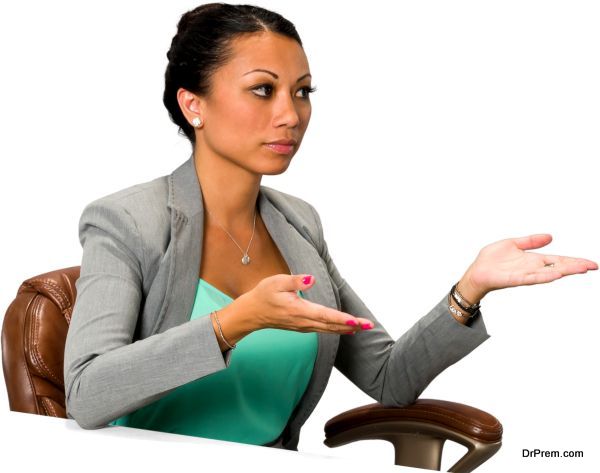Numerous body language studies have explained the importance of how your body expresses your confidence or nervousness to the outside world. For TV anchors, maintaining a body language that showcases their confidence and the positive outlook becomes mandatory. Understanding this complex ways of expression might be difficult for even the best television personalities. We have an overview of how you can monitor your body language to radiate confidence and sophistication.
- Establishing a connection
A TV presenter is sitting miles away from his target audience. Hence, for him or her, it is never an easy task to establish a connection with an unpredictable audience. This makes maintaining a confident posture and body language even more important. This means that a TV anchor should create a bond with his body movements that convey the significance of what he is saying verbally too. After considering the mode and type of program, a TV anchor must create a balance between the body language and the verbal dialogue.
- Crossed arms
During an interview, if you keep your arms folded and crossed across your chest, it would indicate nervousness. It shows that you are hiding something or are defensive about something. A salesperson will immediately judge that this gesture indicates that the person will not buy any product from them. When asked a question during a television interview, crossed arms indicate that the person will most likely not reveal any new information. This makes the reporters prod the person even more as they know that this is an act of hiding something. Moreover, you should always know about some common body language tips to avoid miscommunication.
- Eye contact
Maintaining a good eye contact usually indicates honesty. A person who is lying will usually look away. The term “shifty-eyes” is used to describe people who keep looking side-to-side and it indicates anxiety or discomfort. When a right-handed person looks at his right side before answering a question it indicates that he or she is crafting an answer. This may be an indicator for a lie. The reverse is true for a left-handed person.
Looking upwards when answering a question means the speaker is remembering facts from memories and hence shows that the speaker is saying the truth. All the best Indian TV anchors recognize these body language traits with ease and nudge the speakers whenever they are skeptical.
- Body posture when you are sitting
If you are about to be interviewed, never sit in a rocking or swiveling chair. As soon as you get nervous, your body language will reflect even more because of the rocking of your seat. Sitting on your seat with your hands cupped behind your head or leaning backward on the seat while doing the same indicates a sense of superiority. The position of your legs when you sit also speaks a lot about your etiquette training and behavioral characters. Women generally sit with their feet on the floor with one ankle locked behind the other. Women also commonly sit with crossed legs. When nervous they tend to twist the ankle that is above the ground. Rocking the suspended leg from the knee to the foot is also seen in nervous people.
Men tend to sit with their feet close together on the floor and their knees slightly spread, or spread a little more than the feet. Spreading the legs too wide open creates unnecessary attention towards the genital area and is seen as an offensive way of sitting for men. It also suggests a sense of superiority, ignorance or stupidity.
- Movements of hands
The most unacceptable thing to do in a TV presentation is to flail or pass your hands in front of your face. Flailing your hands too much indicates that you are unfocused or unclear of your own perspective. Sitting or standing with your hands folded in front of your genitals is a sign of vulnerability or weakness. It may indicate a lack of confidence, especially in men. Avoid swaying or swiveling your hands while you stand this too indicates the same nervousness as rocking on a chair does.
Summary
There are immense signs and interpretations of the body language we adopt while we speak in public. These can only be judged after thorough observation of self and regular checks. Projecting nervousness can work adversely for TV anchors as well as celebrities.







